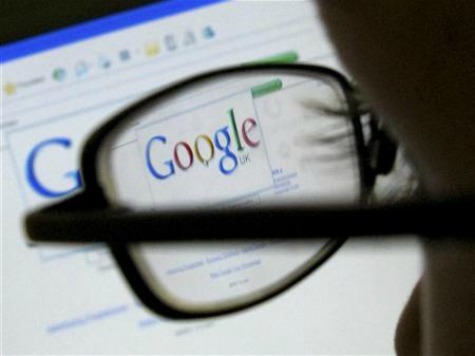On Monday, President Obama announced that he would be pushing the Federal Communications Commission to begin enforcing “net neutrality” – a policy by which internet service providers would be forced to load all web sites at the same speed. While the internet works just fine as is, President Obama believes we’re mere moments away from the system breaking down barring massive government intervention:
We cannot allow Internet service providers (ISPs) to restrict the best access or to pick winners and losers in the online marketplace for services and ideas. I believe the FCC should create a new set of rules protecting net neutrality and ensuring that neither the cable company nor the phone company will be able to act as a gatekeeper, restricting what you can do or see online.
If this sounds suspiciously like the language President Obama used with regard to health insurance in his pitch for Obamacare – unlimited access and zero scarcity, as dictated by the government – that’s because it is. Free market economics generally create higher supply, lower price, and better service. But President Obama believes that markets inevitably fail.
Here are the top seven reasons government-enforced net neutrality is an awful idea:
We Already Have Net Neutrality. As a result of competition between internet service providers in the marketplace, ISPs generally do not discriminate against highly-trafficked websites. If they did – holding a figurative gun to the head of those websites by throttling back speed to those websites – consumers would dump those ISPs in favor of others. Competition ensures that companies do not have the leverage to discriminate against particular websites.
Some Companies Take Up More Bandwidth Than Others. Netflix consumes a huge amount of peak traffic bandwidth. That costs ISPs money. Pornography sites consume a huge amount of bandwidth. That costs ISPs money. Were an ISP to push YouPorn to pay fees for its higher bandwidth, consumers of the ISP who did not use YouPorn would be the beneficiaries – they wouldn’t be subsidizing YouPorn. As Alexandra Petri of Washington Post writes, “To use one of those dreaded analogies, if you are constantly driving huge trucks, full of big deliveries of pornography, along a road, why shouldn’t you have to pay more for the road’s upkeep?”
Meanwhile, other ISPs could calculate that they want to absorb the costs of YouPorn in order to carry YouPorn, since YouPorn could refuse to pay the fees to the first ISP. That would be an advantage for the second ISP. In other words, market choices take place, and those can provide options to consumers. Net neutrality would ban such deals.
The Government Still Allows Discrimination In Traffic. ISPs inherently have to prioritize traffic. It’s what they do. The government has decided to exempt “reasonable network management” to allow differentiation of traffic – but then defines it ambiguously, leaving it up to the government to determine when an ISP is in compliance. This is a recipe for regulatory disaster, complete with bureaucratic arbitrariness.
Barriers to Entry Are Created. There is a reason that Google backs net neutrality. As I wrote in April:
Google was in favor of net neutrality; that’s because, as Robert E. Litan and Hal J. Singer wrote in the Harvard Business Review, “Absent net neutrality restrictions, entrepreneurs in their garages would devote significant energies trying to topple Google with the next killer application.”
Of course, Google became an opponent of net neutrality when it came to GoogleFiber, which the government conveniently neglected to make subject to net neutrality.
Technological Stagnation. Comcast and AT&T and the like are using ancient wires to transmit internet. That’s why internet access is so slow in large swaths of the United States. They have no incentive to upgrade their wiring because they have monopolies on that wiring, thanks to the government. According to Andy Kessler of The Weekly Standard, “the United States is 16th in the world in broadband use (behind Liechtenstein!) with East Timor catching up fast. The French may burn Citroëns, but they get 10 megabits for 10 euros–50 times your ‘fast’ Internet access for half the price. That’s just not right.” The solution: open competition and far less local and state regulation, not more federal regulation. Net neutrality does nothing about the real problem with the internet: lack of speed.
Internet Taxes Could Happen. Harold Furchtgott-Roth of Forbes writes that by making the internet subject to the strictures of the interstate telecommunications industry, the FCC could impose fees on internet service:
By classifying broadband access services as “interstate telecommunications services,” those services would suddenly become required to pay FCC fees. At the current 16.1% fee structure, it would be perhaps the largest, one-time tax increase on the Internet.
Content Restrictions From The Government. The government promises that it will use the power of net neutrality for good, not evil. But just like the government’s once-infamous Fairness Doctrine, the notion of the government determining what equal access to the internet looks like is deeply problematic. Kessler writes:
You can already smell the mandates and the loopholes once Congress gets involved. Think special, high-speed priority for campaign commercials or educational videos about global warming. Or roadblocks–like requiring emergency 911 service–to try to kill off free Internet telephone services such as Skype.
The government is never the solution, especially when there’s no real market failure. As usual, government’s cure is worse than the disease.
Ben Shapiro is Senior Editor-At-Large of Breitbart News and author of the new book, The People vs. Barack Obama: The Criminal Case Against The Obama Administration (Threshold Editions, June 10, 2014). He is also Editor-in-Chief of TruthRevolt.org. Follow Ben Shapiro on Twitter @benshapiro.

COMMENTS
Please let us know if you're having issues with commenting.